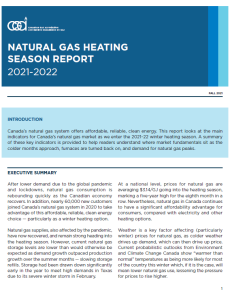Topic: covid-19 Malaysia’s economic stimulus: the negotiating role of the New Global Chemical Council

It is undeniable that the existence of trade unions and the support for social democratic systems are all important prerequisites. The existence of trade unions in Malaysia today is related to the existence of national sovereignty; The rights of workers are a subset of the balance and equilibrium of social alliances, and social alliances are the common structure to maintain national dynamics. In the decision-making field of a country, although small in scale, trade unions promote and encourage these precedents through the norms or structures of deeply rooted and widely accepted civil society coalition networks. The decisions made by trade unions on the interests of workers according to the needs and welfare of the state help to clarify the role of their own decisions; This is an important pillar of the country. These small decisions of the trade unions also help to make further decisions about the country and the economy. In today’s more networked, borderless and ostensibly equal society, this role is bound to be strengthened and constrained and developed in the melting pot of globalization.
In short, the problem seems to be the inevitable conflict between the market or market power/success/relationship and/or economic competition policy and the communitarian position on labour rights. In the worst case, market imperialism can be regarded as a nightmare for workers. Although this is the realization of the capitalist illusion, this imperialist unity is bound to fundamentally confront and compromise the concept of a democratic country (and industrial democracy); He is an advocate of privatization and laissez faire. The capitalist ideal here is a society where entrepreneurs provide consumers with all goods and services. Under the concept of fairness encouraging market success, inequality is the price consumers (in this case, workers) must pay. Such market forces above capitalism require workers to be disorganized. If workers do not unite to express their concerns, they will find themselves unhelpful in the market. This has delighted the successful supporters of pure market forces. The more successful imperialism, the greater the inequality. What these supporters cannot understand is that in Malaysia, as a pluralistic society, trade unions have fundamentally decided to become legal members of the Malaysian Civil Society Union Network. This allows these network members to conduct necessary and even sustainable consultations; The market is once again embedded in an association network, which is complex. In this network, the forms of ownership are diversified. (Malaysian society is diversified in nature, usually called masyarakat majmuk.) In order to legalize sustainable market relations, it will be a win-win result for both sides. Or in the case of smart partnership, the three parties, namely the Labor Party, the employer and the government in power).
Recently, many entrepreneurs of small and medium-sized enterprises (hereinafter referred to as “SMEs”) are required to pay attention to and accept the opportunities, direction and leadership brought by the launch and implementation of AEC (ASEAN Economic Community).
The awareness level of Malaysian SME entrepreneurs is quite low, including their understanding of the Silk Road Initiative (hereinafter referred to as SRI). If people are still generally ignorant of FTA (Free Trade Agreement), AEC and SRI, it is difficult for entrepreneurs to gain any benefits from various agreements and their surrounding environments. This is a very important gap and an opportunity for trade unions to play a role. It is considered to serve the best interests of Malaysian workers as a negotiating body.
SMEs play an important role in the engine of economic growth in Malaysia and other countries. Small and medium-sized enterprises can help workers increase their income. It is necessary to have a deep understanding of the industries with great potential in Malaysia’s economic growth. Fundamentally speaking, SMEs play an important role in the economy; That is, we should stimulate economic growth and growth, reduce poverty levels and help improve people’s basic living standards.
On the surface, the increasingly flat world and borderless network environment seem to increase and continue entrepreneurship; The personality that national economic stakeholders focus on can mainly become the relevant driving force of the economy, so it is not subject to the specific obstacles or restrictions such as fixed working hours or other restrictions of ordinary employees.
In today’s world, sustainable partnerships between governments, employers and trade unions/workers are very important. The government is the guardian and provider of citizens, and the role of workers cannot be underestimated in this case. The metaphor of smart partnership is widely used here, trying to describe the goal of ensuring better cooperation and competitiveness through power sharing. This is particularly important for SRI because the public is not familiar with the full scope and details of the above issues. As a tripartite partner, trade unions can play a positive role in the training of workers on TPPA. If the success of an enterprise or service largely depends on its employees’ smart exercise of their discretion and use of all their skills and knowledge, then the advantages of cooperation through negotiation and agreement management will be even greater.
The author said modestly that special officials of organizations such as sustainable global trade unions and unique and experienced industrial relations leaders can deal with various implementation and re education of workers on “SRI”. Social knowledge in political economy, for example, from a judicial or economic perspective, is produced for the common interest of people (this article refers to SMEs). )In view of the latest developments such as “SRI”, we should give full play to our unique experience and actively cooperate and communicate with SMEs based on their common experience in the dynamic trade furnace. In general, SMEs in Malaysia are unique in the multi-ethnic space of cultural diversity; If SMEs and other industries meet the needs of this common interest, SMEs should bring interesting and diverse commonalities to tell them that they will eventually gain advantages in the competitive field. Although it has its own form and rights. By adopting this approach, Malaysian businesses will have sustainable and enviable legal relationships.
Joseph Raz, the famous philosopher of Kant and Mirren, summarized the comprehensive position of the best two worlds in the following four business world principles or principles. In other words, i) People’s lives are successful and full. As long as they successfully participate in valuable activities and relationships wholeheartedly, autonomy can be said to be the most important part of living a good life. Otherwise, it is very important. Iii) Moral diversity is beneficial. Iv) The government has the responsibility to promote national welfare. These trade unions are familiar with these basic principles of labor law and principles, and have sufficient conditions to study how to apply or implement reform in a form suitable for labor welfare.







